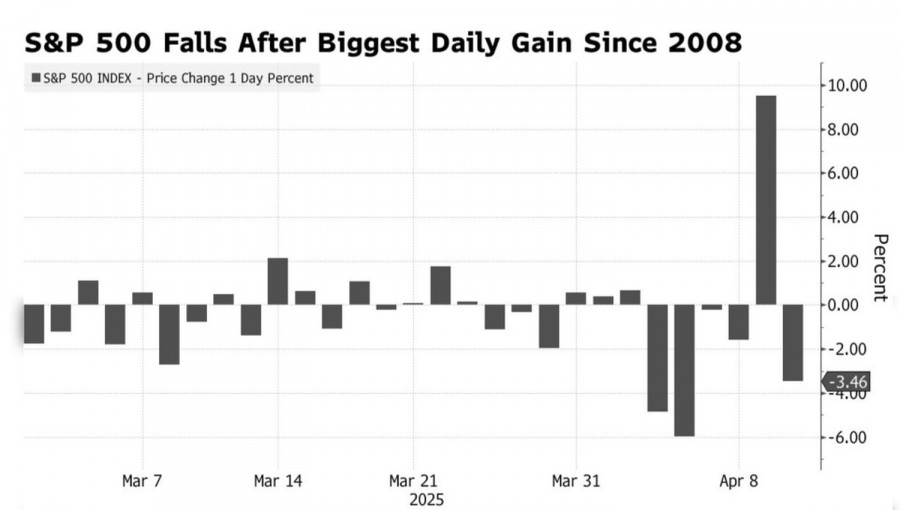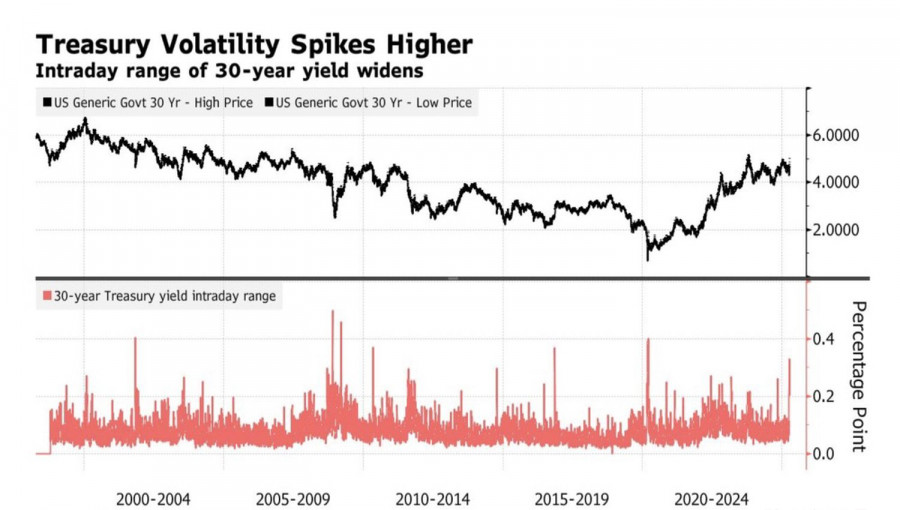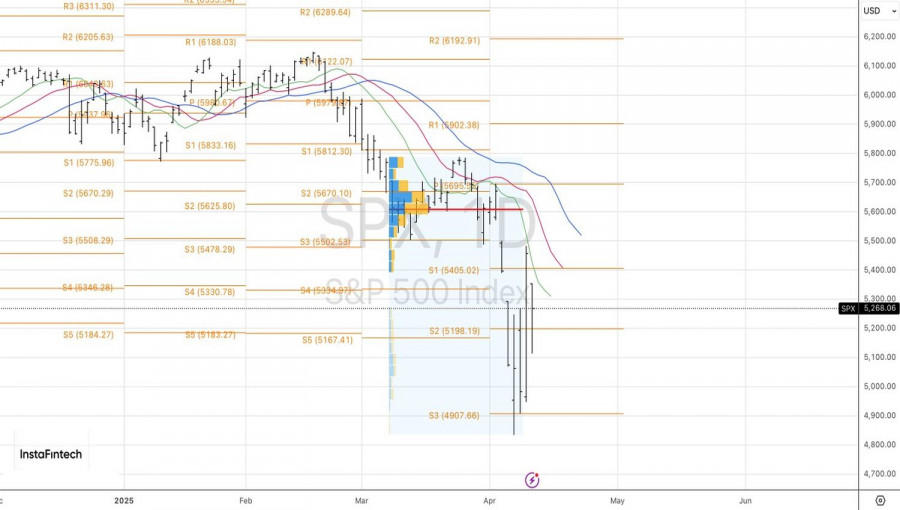See also


 11.04.2025 08:42 AM
11.04.2025 08:42 AMWhat is life if not a game? In past years, investors focused on the standoff between the Federal Reserve and financial markets. But in 2025, the rules of the game have changed. Now, it's the White House—not the central bank—that markets are testing for resilience. Donald Trump claimed winning a trade war would be easy, but the drop in the S&P 500 prior to the tariff delay announcement suggests that traders think otherwise. The Republican's step back on tariffs triggered a record surge in market capitalization. But the chaos is far from over.
The S&P 500's 9.5% rally in response to the U.S. freezing tariffs for 90 days clearly showed what markets consider the main threat to the global economy: the trade war. The next day, the White House clarified that tariffs on Chinese imports would stand at 145%—not the previously announced 125% by Trump on social media—the broad stock index fell by 3.5%.
The sell-off that followed the historic rebound in the S&P 500 was the price investors had to pay for such extreme volatility.
The White House boasts that around 70 countries are willing to negotiate, and about 15 have already submitted proposals. However, a Wall Street Journal insider claims that most proposals are simply calls to lift tariffs. The U.S. administration is expected to demand increased purchases of American goods and reductions in foreign tariffs. But this is a lengthy process, historically taking years. The first trade war with China took months to begin negotiations. Now, Donald Trump aims to revise trade agreements even faster—potentially with nearly 100 countries.
As a result, skepticism is growing over the feasibility of Washington's plans. Combined with the unpredictability of its protectionist stance and the chaotic implementation of tariffs, this erodes trust in the U.S. economy and its financial assets. Rumors have begun circulating in the market that the U.S. may need a recession to reset its fundamentals.
The trade war between the world's two largest economies will not end well for anyone. A 145% tariff is enormous, indicating that some portion of the $582 billion in Chinese imports into the U.S. will be redirected to other countries—if possible. Beijing has limited options to respond. One of them could be selling off U.S. Treasuries. Rising yields suggest that this process may already be underway.
Thus, the White House's tariff delay has not ended the market chaos. U.S. equity market volatility remains elevated.
From a technical standpoint, the S&P 500 daily chart forms an inside bar with a long lower shadow. A breakout above the 5355 high could signal short-term buying. However, opening short positions on a rebound from resistance levels at 5500 and 5600 remains valid.
You have already liked this post today
*The market analysis posted here is meant to increase your awareness, but not to give instructions to make a trade.
The GBP/USD currency pair also traded higher on Friday. However, it's worth noting that the British currency—once praised for its remarkable resilience against the dollar in recent years—is now rising
On Thursday, investors realized there is currently no such thing as stability. High market volatility remains and will continue to dominate for some time. The ongoing cause of this remains
A relatively large number of macroeconomic events are scheduled for Friday, but none are expected to impact the market. Of course, we may see short-term reactions to individual reports
Forex Chart
Web-version

Your IP address shows that you are currently located in the USA. If you are a resident of the United States, you are prohibited from using the services of InstaFintech Group including online trading, online transfers, deposit/withdrawal of funds, etc.
If you think you are seeing this message by mistake and your location is not the US, kindly proceed to the website. Otherwise, you must leave the website in order to comply with government restrictions.
Why does your IP address show your location as the USA?
Please confirm whether you are a US resident or not by clicking the relevant button below. If you choose the wrong option, being a US resident, you will not be able to open an account with InstaTrade anyway.
We are sorry for any inconvenience caused by this message.



